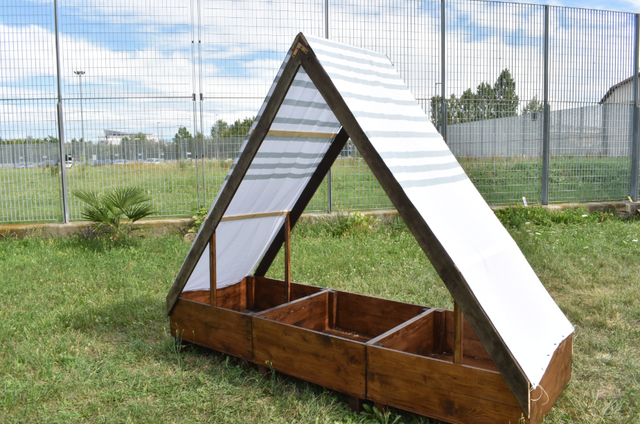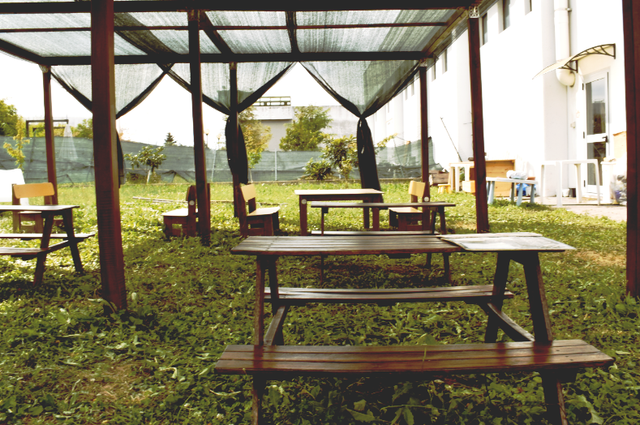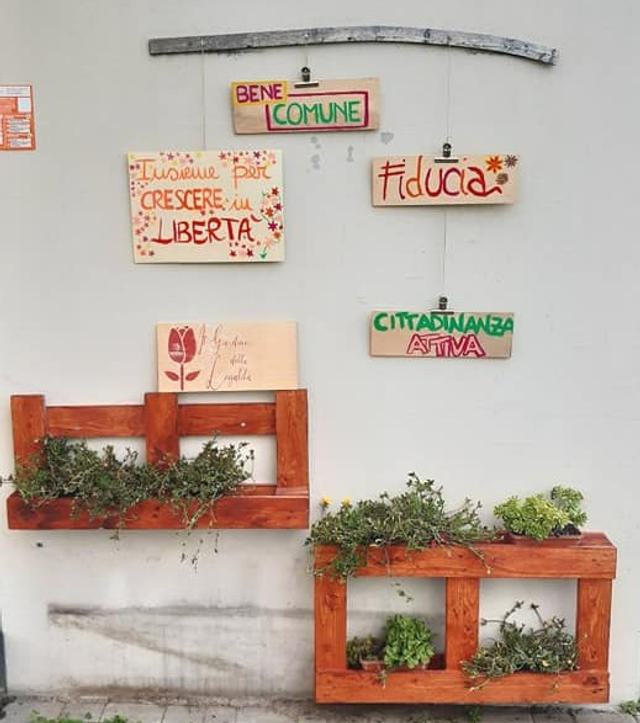Stripes Social Cooperative – ‘Make legality blossom. Turn the world into a beautiful place.’
- Exhibited by
- Caterina Ferrari
- Added
- March 10, 2022
- Medium of Communication
- Community outreach and word of mouth
- Target Audience
- Local community
- Type of Charity
- Cooperative
- Country of Origin
- Italy
- Date of first appearance
- 2020
SOFII’s view
This is something a bit unusual when it comes to SOFII content, in that it doesn’t involve traditional fundraising or significant sums of money being raised. Stripes is an Italian cooperative that wanted to renovate and expand an outdoor education space inside a reduced custody prison. This would benefit the kids of both staff and inmates, as well as the wider community. How did they manage this? By cultivating a spirit of generosity among its own staff that they could then transmit to the volunteers and beneficiaries. And what a force such a spirit can be! Together, these different members of the community combined their forces, inspiring people who weren’t even going to use the day-care garden to donate time and resources to the cause. This is an example of the human spirit overcoming difficult odds by building a common cause.
Creator / originator
Stripes Social Cooperative
Background
Founded in 1989, Stripes is a social cooperative that carries out research, consultancy, training, planning, and management of socio-educational services to its beneficiaries: young children, minors, people with disabilities, and immigrants. It also does a lot of work in the field of education. It manages around 60 services with multiple intervention methods, employing about 650 workers for more than 2500 service users. The main purpose of Stripes is to promote personal well-being, social cohesion and innovative social policies and services. It provides high-quality services to suit the needs of its beneficiaries and their families.
On the fundraising side, they run an annual campaign and a few small fundraising projects.
Summary / objectives
In 2020, at end of the first Italian coronavirus lockdown Stripes launched a fundraising campaign to fund the renovation of an outdoor day-care school (named Biobab) that they manage in the nearby reduced custody prison. What they didn’t know was that they were about to inspire the local community to set about renovating the park by themselves.
This unique outdoor day-care space welcomes both the children of inmates and prison staff and is also open to the children of ordinary citizens. Stripes decided it was a perfect place to bring together the prison community (as it is a reduced custody centre, inmates are given more freedom) and the citizens living in the surrounding area. Given this location, Stripes decided to build the space around the theme of legality, centred on ideas of beauty, care for the common good, and commitment to the whole community. They promoted a small fundraising campaign among their 650 employees and volunteers to renovate the garden, and they tasked the teaching staff of the day-care centre to involve the families who attended.
Special characteristics
From the outset, the project represented an opportunity to involve different stakeholders directly rather than just asking for money. Stripes had the perfect way to spread the word: their workers and their culture. For the first time, their internal meetings were used to present the project and promote a culture of giving. Moreover, the childcare teachers were tasked with a peer-to-peer fundraising role to promote the campaign among the parents of the school’s 25-30 children. They were trained about the reasons behind the choice of the location, the values the project wanted to carry on, and the impact it could have on the community. They were asked to carry on the communication as they wanted. A message through the school app and a meeting with the parents created such a strong worth of mouth that it pushed involvement to an unprecedented level. They told the story of Biobab much better than anybody else could have because they knew the people involved very well, and they knew what they needed to do to feel fulfilled as donors.
Results
More than 50 per cent of the employees/members got involved, and about 20 per cent took an active role. All the school parents created the garden and spread word of the project to garner support.
The campaign had little return in terms of money donated but instead received contributors’ time and gifts like plants, paint, and wood, and so many brought practical skills (gardening, carpentry, and so on) that the community alone built the garden with no need of huge financial resources.
A culture of giving started to spread in the organisation. The teachers had successfully turned themselves into the peer-to-peer fundraisers the project needed, and, with not much awareness of it, they built a strong, active community. The community made its garden.
‘The goal was to build the garden; whether we did it or the community, it was the same. The fact that the community did it, makes it feel like more of a good for the community itself.’
Stripes proves that if you invest in spreading the culture of giving internally and in turning your employees/members into peer-to-peer fundraisers, they will be able to activate such a strong and active community to make it natural for them to collaborate to build their common good.
Other relevant information
To kickstart the creation of the garden, Stripes partnered with Libera, a network of entities involved in the fight against the mafia, corruption, crime, and for social justice and citizens’ rights protection. Together they launched the project ‘Sowing words of legality’: with a donation of €10, donors could choose a word related to the subject of legality, and they could leave it as a testimony. For each word ‘donated’, a wooden plaque was created by the volunteers and exhibited as a symbol of beauty and care for the common good in three key places, including at Biobab, the garden of the prison creche, where children and their families can experience the importance of freedom and inclusion for all daily.
 View original image
View original image
 View original image
View original image
 View original image
View original image


















